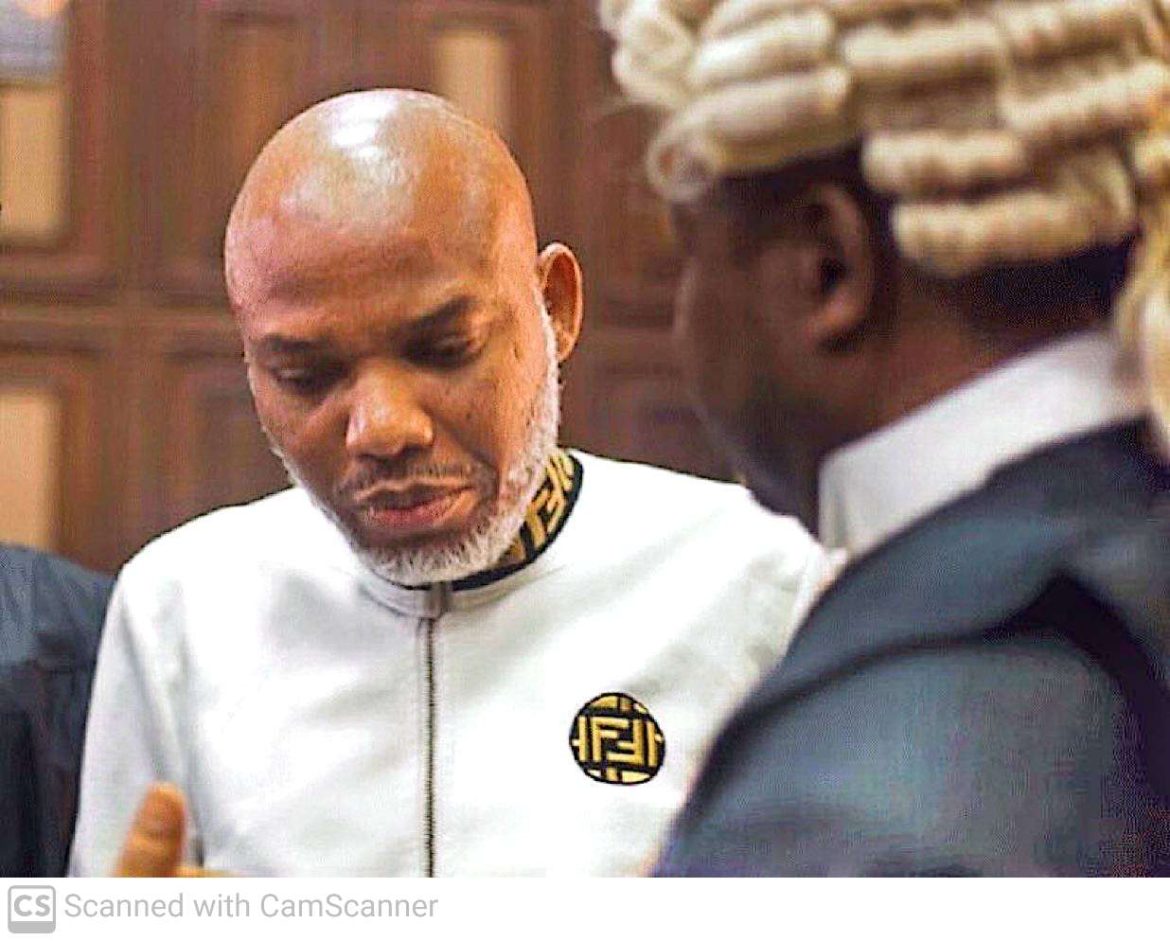The leader of the Indigenous People of Biafra, Nnamdi Kanu, will challenge the life imprisonment sentence slammed on him by the Federal High Court in Abuja, his lawyer, Aloy Ejimakor, has confirmed. Kanu was on Thursday convicted on seven terrorism-related charges and handed a life sentence by Justice James Omotosho, a ruling that has quickly stirred heated debate across the country.
Justice Omotosho ordered that Kanu should spend the rest of his life in prison on counts one, four, five and six, while also giving additional prison terms on the remaining counts, all to run concurrently. The judge explained that he chose life imprisonment instead of the death penalty in line with global concerns over capital punishment and the need to moderate justice with mercy.
Reacting to the decision, Ejimakor condemned the judgment as a grave miscarriage of justice and announced that Kanu’s legal team would immediately head to the Court of Appeal. He maintained that the prosecution did not prove that Kanu personally committed acts of terrorism, insisting that the IPOB leader was essentially being jailed for his speeches and broadcasts rather than concrete violent actions.
The lawyer further hinted that the case could move beyond the Court of Appeal and end up at the Supreme Court if the conviction and sentence are upheld. He said the defence would challenge the verdict on grounds including jurisdiction, fair hearing and whether Kanu’s statements truly met the strict definition of terrorism under Nigerian law. Ejimakor also urged Kanu’s supporters to stay calm and keep faith in the legal process.
The life sentence marks a dramatic new chapter in a long-running legal saga that began with Kanu’s first arrest in 2015 and his controversial rendition from Kenya in 2021. Government lawyers accused him of using radio and online platforms to incite attacks on security personnel and civilians, as well as of enforcing “sit-at-home” orders that crippled business activities in the South-East.
Public reaction has been sharply divided, with some Nigerians applauding the ruling as a strong stand against insecurity, while others describe it as excessive and politically motivated. On social media, conversations around Kanu’s fate and the planned appeal have dominated timelines, exposing deep fault lines over how the state responds to separatist movements.
For now, Kanu remains in custody as his lawyers put finishing touches to the notice of appeal that will officially set the next phase of the legal battle in motion. The case is expected to continue to shape national conversations around politics, justice and security in the coming months, as higher courts are called upon once again to decide not just Kanu’s future, but also how Nigeria confronts separatist agitations going forward.





